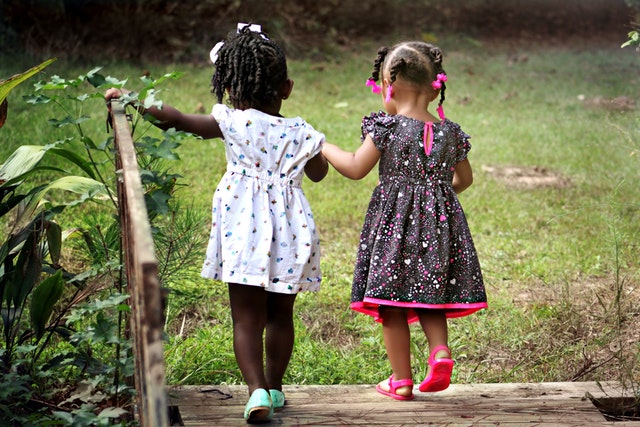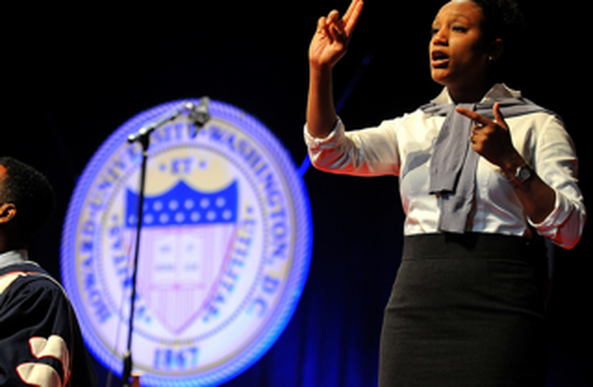|
Photo by @pixabay via Nappy There was a time when I would push organizations I was part of to write statements about the injustice of the day. I would approach the person(s) at the highest level to make my demand.
Predictably, a pattern would emerge, where I would:
I am reflecting on my root cause. Why did I need them so badly? Having studied economics in college, I know that all economic agents are assumed to be "rational". That is, each person is assumed to act in their own best interest, to maximize their utility. In plain terms, they are assumed to do what is needed to survive and thrive, to be happy. As a rational human, I also need to survive and be happy. I need to, at minimum, identify humans who are either my mortal enemies (those who disregard my humanity, which kills me, or who stand by while others do), or those who are pro-Marian, who would fight for me. In some way, statements helped me distinguish the two groups. Looking back, this does seem perfectly rational. But now? I no longer need statements. Not only am I no longer expecting or requesting them, I would rather not have them at all. They cloud the real issue. I have evolved to a new sense of rationality. Statements can not protect me nor help keep me alive. (Neither can verdicts.) Basically:
Evolving past statements also means that I will be moving differently. No more convincing or cajoling. Life is too short, and I need to live and enjoy and protect the years I have left. Rationality now means putting my happiness first. It means moving with those I know* are pro-Marian. This is bare minimum. It is what I deserve - surrounding myself with those who will fight for me, and I for them. I can live with that. *How do I know? That is my business not to be explained to anyone.
0 Comments
A recent handmade gift from a friend. Sending a 3am text to a friend while sobbing
Receiving a 3am text from a friend who is sobbing Documenting miracles Expecting surprise cards, letters, t-shirts, food in the mail from friends...just because Sending gifts to someone you hardly know, because they need it Listening to the voice inside that tells you to send words of affirmation to someone Spending time with those who are dear, possibly at a distance, in silence Experiencing a full conversation - no words exchanged Praying for humans who don't share your spiritual beliefs Praying for your own children Praying for other people's children Expecting fear Expecting elation Loving the life you lead Image by Dave Hoefler via Unsplash. Is it normal to begin well past your supposed prime?
To try things so new and fresh and scary That you'd forgotten what it was like to be green? Will I be able to forget the magical? Should I try to forget the unpleasant? Which would make me whole? Excitement and guilt Pain and beauty Scars yet healing liberation Coexisting Complementing Competing Becoming a fading memory that relinquishes power to the imperative now Alas, I must begin again. DLisa Robinson, founder of Accessible Integrated Media, is shown interpreting at an event held at Howard University. When I was asked to reprise a presentation of my talk, Measures of Center for NCTM, I was not aware that I would be asked to record it. Doing so demands the added responsibility of being prepared early (I am a chronic procrastinator), and is without the benefit of immediate feedback. In this presentation, I talk about the importance of centering students who tend to get marginalized and share personal experiences and observations. However, in the three years since presenting it at Twitter Math Camp, I have realized I have a long way to go in decentering self. I tend to think I am doing the thing, until something jars me into the reality that I am not. I remember when I began using pronouns in my email signatures and screens. But the real work lies in normalizing gender fluidity in everyday speech, interactions with friends, and in my classroom. I also remember when I finally felt that my land acknowledgement was good...until a new perspective and critical feedback told me it was lacking. And, yes, I now enable autocaptioning in Powerpoint to make my words accessible to the deaf community and thought this was good enough. Well, it's not. It's just a start. As I wrestled with the approaching deadline to create and record, I decided to have the recording captioned by a human and include an interpreter. I write this piece because I am finally realizing that this isn't an add-on. It is absolutely necessary for accessibility and should be normalized. I have learned so much from my friend, Lara Metcalf, who tirelessly fights for conference accessibility for the deaf community. She made me realize that the accuracy of autocaptioning in Powerpoint is frustratingly lacking. I turned to my friend, DLisa Robinson (pictured above) to provide the services through one of her companies. I'd like to share with you what I learned from the experience. Live Signing I sent DLisa the text of my speech prior to recording. That allowed her to ask about metaphors and homophones and nuances in word meaning. This would never have occurred to me, but context matters. It would have also been the time to make sure that any specialized content words were discussed. Depending on the length of the presentation, multiple signers may be needed to maximize the accuracy of the message. Since my session is 45 minutes, one signer is adequate, but two would have been better. I also wished I would have enlarged the video of the signer. Next time. Slides A deaf person will either rely on signing or captioning, but not both. The same can be said for the text on the slide and the text in the captioning - both will not be read. This was another eye-opener. I have gotten into the habit of not reading words on a slide. I thought that was condescending to an audience. But if I want them read and I also want the captioning read, I need to pause for both to occur. Similarly, if I want the words on my slide to be signed, I will have to actually read them. For me, this will change the way I design slides and use my voice.
More and more, these practices are becoming more normalized. DLisa's services were used at the MIT Teaching Systems Lab's Future of Math Professional Learning Conference held in January, 2021. Says Chris Buttimer, a post-doctoral associate there: "We are thrilled to be able to offer critical accommodations that help all participants meaningfully engage in our upcoming virtual conference, The Future of Math Professional Learning. We look forward to collaborating with D’Lisa Robinson and colleagues to realize this goal.” Photo by Aliyah Jamous via Unsplash F R E E
To feel To breathe To cry And cry And cry some more So much pain to purge Before I can begin to feel joy... But it will come As sure as a rising sun Got to go through, though To win Photo by Lou Batier via Unsplash For the record, I am not ok. I have survived teaching in 2020 and am on holiday break. I should feel elated. I should feel relieved. I feel neither. I am slowly beginning to process all that I have endured and am still enduring.
Sometimes I just need more than to be believed. I shouldn't have to explain to you what just happened from my perspective. If you are my friend, you should already know. If you are my friend, it should have hurt you as much as it did me. Are we still here? Are we still not really friends? I need more than an apology. Why was your apology private? Do you realize how often well-meaning people apologize to me? In private? What do you fear in making it public? How do I believe you are sincere when it isn't? More than a vow to step up next time. Next time. Again, I must wait for the next time. Will you even recognize the next time? Now that you know, will you do anything to address the harm? What is your plan for changing the system? I need you in solidarity from jump. We have been here before. We have had this same discussion before. You can not claim ignorance. Perhaps it is my turn to claim lack of will. You will need to prepare yourself when you enter the arena with me. Your privilege prevents you from needing to prepare. Your lack of preparation is killing me with every instance, every interaction. I am left hanging on a limb alone, absorbing the blows while you watch. So there it is. I have already told you I am not ok. Now what? What will you do? You know what I want. Will you come through this time? Photo by Ali Yahya via Unsplash Can we talk about the harm from staff meetings?
I mean if you hate kids so much Maybe you should just quit How do you think I feel When I have to listen to you Trash the kids I taught last year? I still love them But you never did Did you even try? You say you "don't even know these kids" now Precisely the point Why not? "Can we make them turn their screens on?" "Students are so disrespectful." Pedagogy Why did it take a pandemic to engage in discussion about pedagogy? Why are we not asking, "How are the children?" The following is adapted from the Opening Address given at the EF+Math All Hands Event, October, 2020. Photo by Leighann Blackwood via Unsplash In her book Beloved, Toni Morrison wrote: Definitions belong to the definers, not to the defined. For me, that resonates as someone whose position as a Black woman and as a classroom educator often causes me to be defined by others. Therefore, I situate myself through my own acknowledgements.
To acknowledge is to accept, to admit to be true, to admit something exists. Acknowledgements set the context. I acknowledge that the land I am on today called Georgia is the unceded land that once belonged to the Cherokee Peoples, land that they were forced to leave behind. I further acknowledge that my ancestors were stolen from their homeplaces to work this unceded land. I ask a blessing from the Cherokee Nation and from my enslaved and free ancestors whose countries of origin and native languages are unknown to me. May our time today be fruitful. Personally, I acknowledge that although I am a healthy and employed educator, I am dealing with chronic trauma. I have been teaching remotely for the past ten weeks, enveloped in the inevitability of returning face to face, in a state without mandated social distancing and wearing of masks. Educator colleagues around the country are expected to plug the now obvious holes in systems to return to a “normal” that never was. As a Black woman, I am very aware of anti-Blackness that surrounds me. My adult children live and/or work in cities of recent highly publicized murders and arrests of innocent people that look like them. Again, to begin with acknowledgements shows that context matters. It is important to acknowledge the lens through which we act and feel. That allows us effectively exchange messages. Greetings, Everyone. Welcome. My name is Marian Dingle and it is my privilege to open this event. You’ve heard the repetition of the word acknowledge, used in several disciplines. In mathematics, we often hear of the practice called notice and wonder. The noticing is the acknowledgement. In the standards of mathematical practice, the very first practice begins: “make sense of the problem” The engineering design process begins with defining the problem. There is a problem that is acknowledged. Nothing begins without it. Even the scientific method begins with the formation of a research question, which, put another way, is a problem to be solved. As the saying goes, you can not solve a problem without first acknowledging there is one. For many here, this is not your first equity workshop. We have been here before. Recent events have caused us to become fluent in the language of diversity, whether we were ready or not. Some questions to consider: What do we acknowledge? Are we able to say the words racism and white supremacy in mixed company? Are we speaking up in real life and not just in these designated spaces? Are we aware of the systems in which we operate? None of us are immune. When do we acknowledge it? Do we wait for something to happen before we march or are we proactive? Do we wait until someone else does or when it is convenient? Where do we acknowledge it? At work? At Thanksgiving Dinner? With friends? Who do we acknowledge? Do we stick to people we know or are we open to those who challenge us? Why do we acknowledge them? Do we have to have personal experience or proximity to a marginalized person? Because there aren’t enough of us around for that. How do we acknowledge? Are we reluctant to put ourselves out there? The time is past due for action and those actions won’t occur without this first step of acknowledgement. What is the problem of my lifetime? That keeps me up at night? It’s that even becoming an educator with my eyes wide open, I was not able to prevent racial trauma of my own children in their K-12 experiences. That try as I might, in all the contexts in which I have worked, students who look like me continue to be at the bottom of every list. And unless you believe that these children are naturally inferior, it should keep us all up at night. I do not wish suffering upon anyone. But. If you are not writhing in pain right now, please acknowledge the privilege you have in not doing so. This work is life work. It is not to be contained in the EF+Math box. It is not a skill to achieve and you will resume your life as before. It will change you, I think, for the better. This work will take your lifetime. You should acknowledge that. Thank you. Photo by Michael Henry via Unsplash. It is the eve of Week 2: remote learning with my coteacher and 26 fourth graders. Week 1 of 2020 was more difficult than Week 1 of my first year teaching, 22 years ago, and believe me, that week was rough. There are so many reasons for this that I won't go into. If you are an educator, you don't need me to.
I am writing this for you, my educator friends who have not yet begun this year. This summer, many of us dealt with our own trauma, sickness, death of loved ones and acquaintances. We tried to imagine what to expect as our districts and schools were deciding how to do school. So many of us learned new tools, curated new resources, all to be prepared for what we had not yet done. It is what we do. We prepare. I get it. And this is why I am compelled to tell you this now, after completing my first week. You know how they say that you can't really prepare for the SAT? Yes, I know there are prep classes, and this helps with format of questions, and general knowledge. BUT. Those prep classes are based on a bank of knowledge gleaned from those who have taken the test many times. Pandemic teaching Part II is a complete unknown. The test items are not predictable like the SAT. There is no format. At some point, you will have to draw upon all the knowledge you have obtained from many areas of your life. Some days were unending triage. I have friends who are struggling with making the correct moral decision. Do they choose to teach remotely and care for their health? Or should they choose to teach in the building and tend to their students' needs? Should they keep their own children at home for their learning, knowing that other parents are not able to make this choice? Is it cheating to actually put yourself first if you are an educator? Is that in the handbook? Doesn't it conflict with the section called "Sacrifice Yourself At All Costs"? Ready? Here is what I know. You did not conspire to create these conditions. None of us did. While I know that you are busy looking for the right answer to your moral dilemmas, and the right platform and right tools, none exist. And that is not your fault. The first week may very well feel like an ER for which you were not trained. Yes, I know. It sucks. You absolutely cannot hold yourself responsible for this. Please remember to forgive yourself continually. You will address each issue as it comes. That is your best. It will look different because your best is now limited by conditions you can not control. I also know that while it is difficult, you will also get through it, because that is what we do. You will find the words you did not know you had, the expertise to troubleshoot unique situations, and the grace to extend to those who need it most. And you know what? You will receive that grace in spades. IN SPADES. Those around you will always remember what you did for them, all the effort you put into planning. Your families will see you. And it will be enough. Remember this, please. Photo by Carolyn V via Unsplash. I have awesome friends.
It seems no matter how much I receive In hugs from family Or reassurances It doesn't last long enough So much death No one wants to discuss They deny it will come to us We are "strong" and pretend But that is violence The violence of silence That we perform On each other And now the violence continues This time in my own home I feel it Others feel it It is worse than in March There was so much time to prepare And yet... The strongholds are much tighter now We try to comfort each other Through texts And cards And phone calls And Zooms How can you give what you don't have? |
My WhyReflecting is good for the soul. Doing so in public is terrifying and exhilarating. Archives
April 2021
Categories |










 RSS Feed
RSS Feed